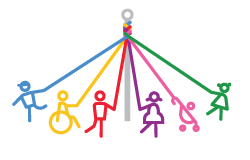SEND support in mainstream schools

The Graduated Approach
- Assess: teaching staff assess your child’s needs.
- Plan: the school agrees what support will be provided, how often and who will be responsible for it.
- Do: the support is put in place and regularly monitored.
Review: the school reviews the support plan and your child's progress at least three times per year.
Useful resources
Leeds Sendiass are not responsible for the content of sites or services offered by third parties.
- Ipsea- How should your nursery, school or college help? advice.
- Department for Education (DfE)- SEND guide for parents and carers.
- Department for Education (DfE)- SEND guide - Easy Read version
- Autism Education Trust (AET)- Parent guides and resources
- Leeds City Council- Local Offer website
- Sensory Processing Hub- Downloads and resources
- Looks like language - Ways to help deal with sensory overload
